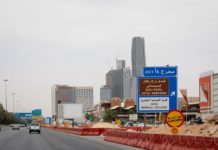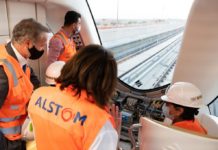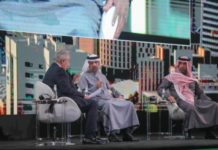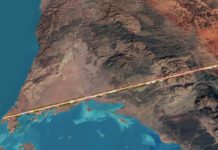Riyadh is the capital and most populous city of Saudi Arabia. It is also the capital of Riyadh Province, and belongs to the historical regions of Najd and Al-Yamama. It is situated in the center of the Arabian Peninsula on a large plateau, and is home to more than 8 million people.
The city is divided into 15 municipal districts, managed by Riyadh Municipality headed by the mayor of Riyadh, and the Riyadh Development Authority, chaired by the governor of Riyadh Province, Faisal bin Bandar Al Saud.
The current mayor of Riyadh is Ibrahim Mohammed Al Sultan. He was appointed mayor in 2015. It has been designated a global city.
Modern history
From the 1940s, Riyadh “mushroomed” from a relatively narrow, spatially isolated town into a spacious metropolis. When King Saud came to power, he made it his objective to modernize Riyadh, and began developing Annasriyyah, the royal residential district, in 1950.
Following the example of American cities, new settlements and entire neighbourhoods were created in grid-like squares of a chess board and connected by high-performance main roads to the inner areas. The grid pattern in the city was introduced in 1953. The population growth of the town from 1974–1992 averaged 8.2 percent per year.
Since the 1990s, there has been a series of terrorist attacks on locals and foreigners as well as protests against the royal family. On 13 November 1995, a car bomb which detonated outside a classroom building of the Saudi National Guard left six dead, and injured over 60 people. On 12 May 2003, 34 people died in a suicide attack targeting American civilians.
On 8 November 2003, a suicide truck bomb attack in the Muhiya residential area with Saudis and Arab foreigners was responsible for killing 18 and injuring 122 people. al-Qaeda has claimed responsibility for the attacks.
On 23 June 2006, Saudi security forces stormed a suspected hideout of al-Qaeda in the neighborhood of al-Nakhil; a bloody battle ensued during which six extremists and a policeman were killed. The current mayor of Riyadh is Ibrahim Mohammed Al Sultan, an experienced transport official. He was appointed mayor in 2015.
Riyadh has the largest all-female university in the world, the Princess Nora bint Abdul Rahman University.
Riyadh is divided into fifteen branch municipalities, in addition to the Diplomatic Quarter. Each branch municipality in turn contains several districts, amounting to over 130 in total, though some districts are divided between more than one branch municipality. The branch municipalities are Al-Shemaysi, Irqah, Al-Ma’athar, Al-Olayya, Al-Aziziyya, Al-Malaz, Al-Selayy, Nemar, Al-Neseem, Al-Shifa, Al-‘Urayja, Al-Bat’ha, Al-Ha’ir, Al-Rawdha, and Al-Shimal (“the North”).
Olaya District is the commercial heart of the city, with accommodation, entertainment, dining and shopping options. The Kingdom Center, Al Faisalyah and Al-Tahlya Street are the area’s most prominent landmarks. The centre of the city, Al-Bathaa and Al-Dir’iyyah, is also its oldest part. Some of the main districts of Riyadh are:
Transportation
Airport
Saudi Arabian Airlines ERJ-170 at Riyadh King Khalid International Airport
Riyadh’s King Khalid International Airport (KKIA), located 35 kilometers north from the city center, is the city’s main airport, and serves over 17 million passengers a year. Plans are being made to expand the airport to accommodate for 35 million passengers, given that the airport was only built for 12 million passengers annually. A possible new airport is on the table. It is one of the largest airports of the world.
Roads
The city is served by a modern major highway system. The main Eastern Ring Road connects the city’s south and north, while the Northern Ring Road connects the city’s east and west. King Fahd Road runs through the center of the city from north to south, in parallel with the East Ring Road. Makkah Road, which runs east-west across the city’s centre, connects eastern parts of the city with the city’s main business district and the diplomatic quarters.
Railways and metro
Riyadh Station
Saudi Railway Authority operates two separate passenger and cargo lines between Riyadh and Dammam passing through Hofuf, and Haradh. Two future railway projects, connecting Riyadh with Jeddah and Mecca in the western region, and connecting Riyadh with Buraidah, Ha’il and Northern Saudi Arabia are underway. A metro has also been approved, with six lines planned with scheduled opening in 2019.
Buses
The metro system will be integrated with a 85 kilometres (53 mi) three line bus rapid transit (BRT) network.
The main charter bus company in the kingdom, known as the Saudi Public Transport Company (SAPTCO), offers trips both within the kingdom and to its Neighboring countries, including Egypt (via ferries from Safaga or Nuweiba) and Arab states of the Persian Gulf.













